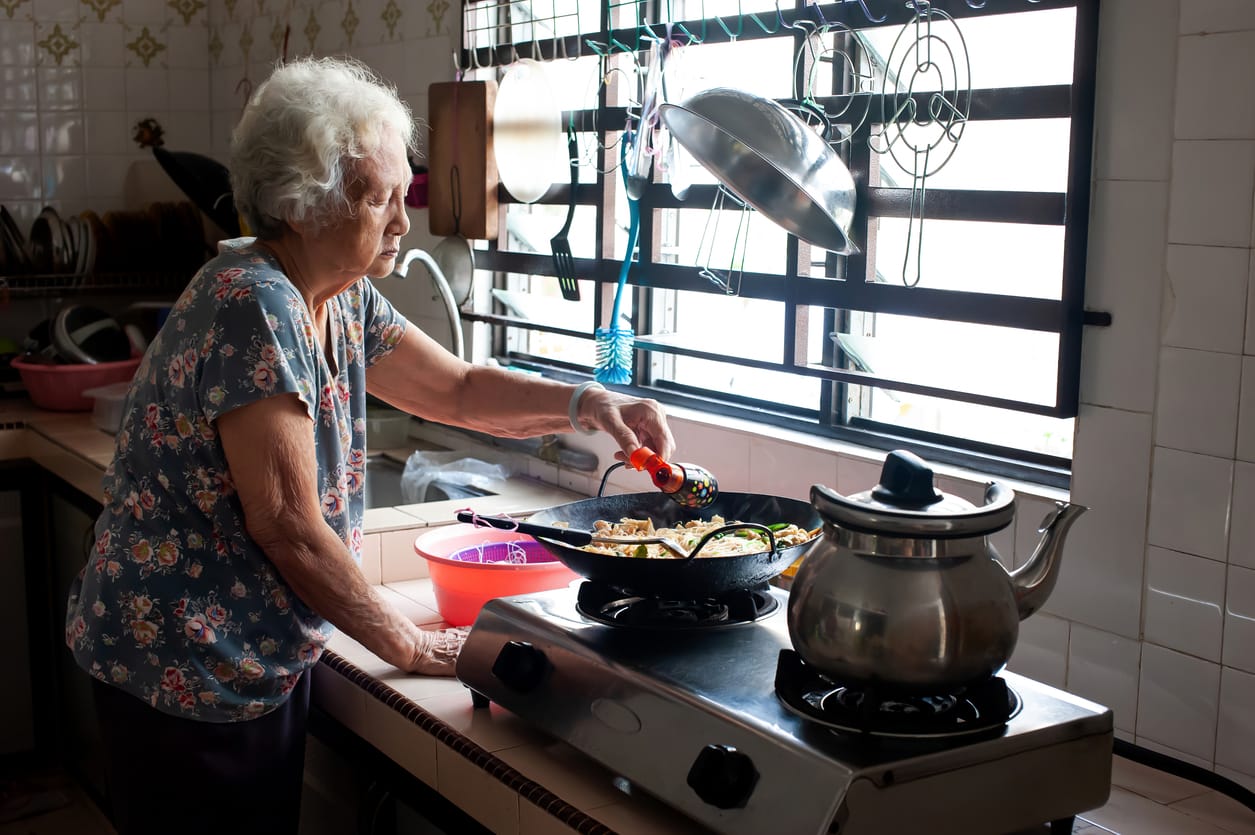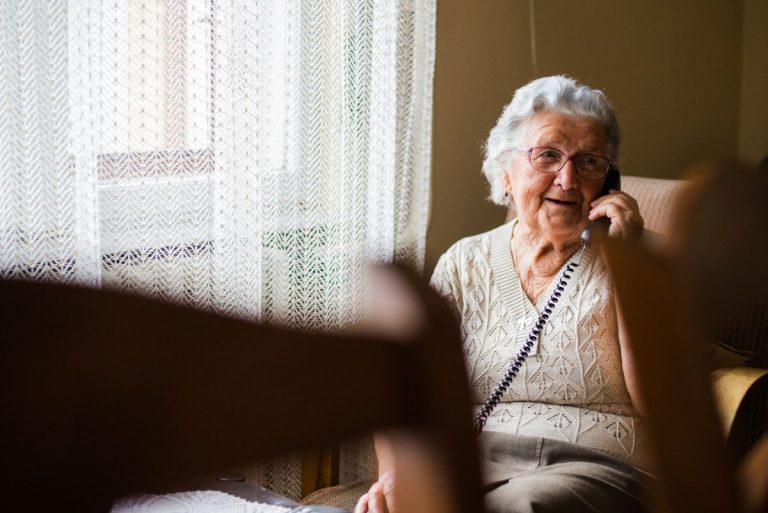Navigating the complexities of caring for our elderly loved ones, yet amidst our daily routines lies an untapped opportunity for enrichment: cultural cooking classes. These classes serve as a gateway to explore the diverse cuisines of the world from the familiarity of our own kitchens. Through learning to cook dishes from various cultures, we not only expand our culinary skills but also deepen our appreciation for global traditions, fostering empathy and understanding. By embracing the flavors of different cultures, we forge meaningful connections with our loved ones, turning mealtime into a shared experience filled with exploration and cultural appreciation.
Why Take Cultural Cooking Classes?
Embarking on the journey of caregiving for our elderly loved ones, we discover within the realm of daily responsibilities an opportunity for profound enrichment: cultural cooking classes. These classes transcend mere culinary instruction, offering a gateway to multifaceted learning and connection.
- Educational Value: Cultural cooking classes offer your senior loved ones more than just recipes; they delve into the history and traditions behind each dish, enriching their understanding of diverse cultures and culinary legacies. It's an opportunity for them to engage intellectually and connect with the world around them through the exploration of food and its cultural significance.
- Social Interaction: These classes serve as a social event for your senior loved ones, bringing together people from different backgrounds and fostering a sense of community as they bond over cooking and sharing stories. For seniors who may sometimes feel isolated or lonely, these classes provide a valuable opportunity to connect with others and build meaningful relationships.
- Exploration Without Travel: Your senior loved ones can experience global cultures without the need to travel, which can be especially appealing for those who may be unable to journey abroad due to mobility issues or other limitations. The kitchen becomes a portal to distant lands, offering a sensory journey and igniting their imagination as they explore new flavors and cooking techniques from around the world.
Types of Cultural Cooking Classes
Exploring cultural cooking classes offers us a dynamic way to enrich the lives of our elderly loved ones. These classes come in various formats, each with its own unique benefits tailored to different preferences and needs.
In-Person Classes
Venturing into the traditional setup of in-person cooking classes opens a world of hands-on learning and direct interaction. Whether offered at local community centers, culinary schools, or specialty food stores, these classes provide a rich environment for seniors to engage all their senses in the culinary experience. From the sizzle of spices in the pan to the aroma of freshly baked bread, every moment becomes an opportunity for discovery and connection. Moreover, the personal guidance from instructors and camaraderie with fellow classmates fosters a sense of belonging and shared accomplishment.
Online Cooking Classes
For seniors who prefer the comfort of home or face mobility challenges, online cooking classes offer a convenient and accessible alternative. Platforms like MasterClass, Udemy, or specific culinary schools provide a plethora of options spanning cuisines from around the world. Through step-by-step tutorials and interactive forums, seniors can embark on a culinary journey at their own pace, from the familiarity of their kitchen. The flexibility to rewatch sessions and revisit materials ensures continuous learning and experimentation, empowering seniors to hone their skills and explore new horizons.
Cooking Demonstrations
For those seeking quick insights or specific techniques, cooking demonstrations offer a concise yet comprehensive glimpse into the culinary world. Whether attending live events or tuning in to television or online platforms like YouTube, seniors can glean valuable tips and tricks from seasoned chefs and culinary experts. While less interactive compared to in-person classes, these demonstrations provide a convenient avenue for seniors to expand their culinary repertoire and stay inspired in their kitchen endeavors.
In essence, whether through immersive in-person experiences, convenient online platforms, or insightful demonstrations, cultural cooking classes offer a gateway to culinary exploration and enrichment. By embracing the diverse flavors and traditions of world cuisines, we not only nourish our bodies but also feed our souls with the joy of shared experiences and lifelong learning.
“Cooking is all about people. Food is maybe the only universal thing that really has the power to bring everyone together. No matter what culture, everywhere around the world, people get together to eat.”
Popular Cuisines to Explore
Finding activities that enrich the lives of our senior loved ones while catering to our responsibilities can be a delightful challenge. Cooking is one such activity that not only allows us to spend quality time together but also stimulates the senses and revives old memories. Exploring popular cuisines from around the world can transform our kitchen into an exciting culinary adventure that is both nourishing and entertaining.
Italian Cuisine
Italian cooking offers a wonderful way to dive into easy yet satisfying pasta-making sessions. Crafting homemade pasta can be a soothing, tactile activity that our elderly can participate in, rolling dough and shaping it, which is excellent for their fine motor skills. Experimenting with various regional sauces—from a hearty Bolognese to a light, fresh pesto—provides a sensory explosion of taste and aroma. And for a sweet ending, we often venture into traditional desserts like tiramisu, which we can enjoy making and eating together, recalling any past visits to Italy or Italian-themed gatherings.
Japanese Cuisine
Japanese cuisine introduces a clean, wholesome approach to meals. Sushi making, for example, is a fun and interactive activity. Even those with limited mobility can enjoy assembling their sushi rolls, choosing their fillings, and rolling the sushi mats. Preparing bento boxes can be a creative process, encouraging our loved ones to pick a variety of nutritious components for a balanced meal. The art of Japanese confectionery, such as making mochi or wagashi, is also a delightful activity, engaging both in its technique and the delicate flavors that are not overly sweet.
Indian Cuisine
The diverse spices and flavors of Indian cuisine can be particularly stimulating. Exploring this cuisine involves learning about the rich variety of spices—each with its own health benefits, which is crucial for elderly care. Cooking regional curries and different types of bread like chapati or naan provides a rich sensory experience and a fantastic opportunity for cultural education. These cooking sessions can be adapted to suit dietary needs and spice tolerances, ensuring meals are enjoyable and senior-friendly.
Mexican Cuisine
Mexican food brings vibrant colors and robust flavors to the table. Making authentic salsas together, like a classic pico de gallo or a more complex mole, allows us to adjust the spice levels while engaging in lively preparations. Exploring traditional Mexican street foods, such as tacos or tamales, can be an enjoyable weekend project that incites nostalgia for family gatherings or travels to Mexico, all the while being easily customizable to dietary needs.
French Cuisine
The elegance of French cuisine is not beyond our reach. Mastering basic techniques in pastry making and sauces can transform the cooking sessions into a sophisticated but manageable affair. Preparing classic French dishes such as quiches or ratatouille allows for using fresh, wholesome ingredients that benefit our loved ones' health. The finesse required in these preparations is a wonderful way to keep the mind engaged and active.
Tips for Choosing the Right Cooking Class
Ensuring that the activities we choose for our elderly loved ones are both enjoyable and suitable is crucial. Cooking classes are a fantastic way to keep them engaged, allowing for social interaction and skill development. Here are some tips to help you choose the right cooking class that will enrich your caregiving journey and provide a delightful experience for your elderly family member:
- Assess Skill Level: It's important to choose a cooking class that aligns with both your and your loved one’s cooking skill levels. A class that is too advanced may be frustrating, and one that's too basic might feel unstimulating. Look for classes that offer a range of levels, or those specifically tailored to seniors, which tend to proceed at a pace comfortable for them and focus on skills that are manageable. Ensuring the class matches your skill level not only helps in keeping the interest alive but also boosts confidence as you both manage to keep up with the lessons and actively participate.
- Check Reviews: Before signing up for a cooking class, take the time to read reviews or ask for testimonials from previous participants. This can provide insight into the quality of the class and the instructor’s ability to engage with students of all ages. Reviews can also highlight how well the class is organized, the success of the recipes, and the overall satisfaction of the participants. Positive feedback from other caregivers or seniors is a good indicator that the class is receptive to the unique needs of older adults.
- Consider the Format: Decide on the format that best suits your lifestyle and caregiving situation. In-person classes can be wonderful for social interaction and direct hands-on learning, which is often more engaging for elderly individuals. These sessions also provide a change of scenery and a chance to interact with peers, which can be very stimulating mentally and emotionally. However, if mobility or transport is an issue, online classes might be a better fit. Online cooking classes offer the flexibility to participate from home and can be paused or replayed as needed, which is beneficial if your loved one needs a slower pace or frequent breaks.
Enhancing the Cooking Class Experience
Enhancing the experience of a cooking class can significantly benefit both you and your elderly loved ones, making the most of each session. Here are some tips to help you enrich the cooking class experience and ensure that it is both rewarding and enjoyable:
- Prepare in Advance: To maximize the learning time during the class, it's beneficial to gather all necessary ingredients and tools before the class begins. This preparation helps reduce any stress related to searching for items during the class, which can be particularly challenging for seniors. You can check the class's requirement list and organize your workspace accordingly. This way, when the class starts, you can focus solely on the instructions and the joy of cooking together.
- Engage Fully: Encourage your elderly loved one to actively participate in the class by asking questions and engaging with the instructor. This active engagement not only helps clarify any doubts but also enhances the learning experience by making it interactive and less passive. For many elderly individuals, being able to contribute their thoughts and inquiries can significantly boost their enjoyment and involvement in the activity, making them feel valued and capable.
- Practice Post-Class: After the class, recommend practicing the recipes learned as soon as possible. Repeating the recipes helps consolidate the skills acquired during the class and builds confidence in their cooking abilities. This practice can be a fun activity to look forward to post-class and can also serve as a way to share the new skills with family or friends. Moreover, practicing helps retain the information and skills learned, which is especially important for maintaining cognitive functions in elderly individuals.
In conclusion, engaging elderly loved ones in cultural cooking classes provides a deeply enriching experience that goes beyond just learning new recipes. These classes offer a valuable opportunity for the elderly to explore global cuisines, broaden their cultural knowledge, and strengthen their connections with caregivers. Participating in these activities also stimulates mental engagement, which is crucial for maintaining overall well-being in later years. I encourage caregivers to embrace this culinary journey with their elderly loved ones, share their experiences, and discover international dishes together. If you've found these classes beneficial, please share them with others who might also enjoy exploring the diverse flavors the world has to offer.





